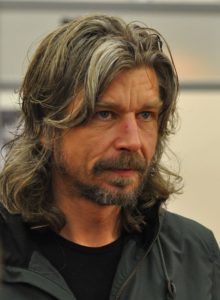Memoir writing is surrounded by many prejudices. Some people seem to think that authors of autobiographies are very focused on themselves, that they are egocentric, egotistic, self-centered, selfish, self-serving, and self-absorbed.
 I think it’s the other way around.
I think it’s the other way around.
As Karl Ove Knausgaard says, to write autobiographically means to wind down your self-consciousness:
“The whole point of writing is to lower your self-conciousness down to 0.1 percent. I’m not present in myself, I’m present in something else than myself. This is what happened when I wrote autobiographically. It was this that made it it possible for me to write My Struggle: that my self-consciousness was almost gone. It was an incredibly good place to be.” (Interview in Danish newspaper Information, 25 September, 2020).
[In Danish: “Hele fidusen med at skrive er, at man skruer sin selvbevidsthed helt ned til omkring 0,1 procent. Jeg er ikke til stede i mig selv, jeg er til stede i noget andet end mig selv. Det var ikke mindst dét, som skete, da jeg skrev selvbiografisk. Det var dét, som gjorde det muligt for mig at skrive Min kamp: at selvbevidstheden var næsten borte. Det var et utroligt godt sted at være.”]
After reading this interview, I wrote a short post (in Danish) on Facebook, which prompted one of my friends (both IRL and online), historian of science Ken Caneva, to ask me to explain the apparent paradox in Knausgaard’s statemant. To which I answered:
“Ken, it’s paradoxical indeed. I understand autobiographical writing as a process in which you focus your attention on the self in the past as if it was an object of investigation that is separated from your current selfish needs. The object of your attention could as well have been another person, another living being, any other object in the universe – what characterizes such processes of attention on objects is that you loose interest in your own appetites and worries and become less self-oriented, more oriented to the world outside yourself, a process of liberation. The apparent paradox is thus that you achieve this state of lessened self-orientation and higher attention to the world outside your self-absorption by focusing on your self of the past – as if he was an insect under the dissection microscope. I don’t know if this is what Knausgaard means, but that’s how I interpret him.”
“I understand your explanation”, Ken replied: “Is that also your experience?”
“Yes, very much so”, I answered, “the more I delve into my past self and his interactions with other people, books, ideas and the physical world, the more he turns into a generalized person, and the more finished the text becomes the less interested I become in him. Finally, hopefully my former me will have turned into a He who won’t occupy me any more and let me get rid of my self-indulgent me.”
To which Ken replied: “Very interesting! At some point I intend to read through my collected body of work. It will be interesting to see what distance I feel from the texts.
(Image: Karl Ove Knausgaard, 2011: credit: Wikipedia / creative commons)
Published on Facebook 19 January 2021 – one comment:
Barbro Berg: Thoughtprovoking indeed!
